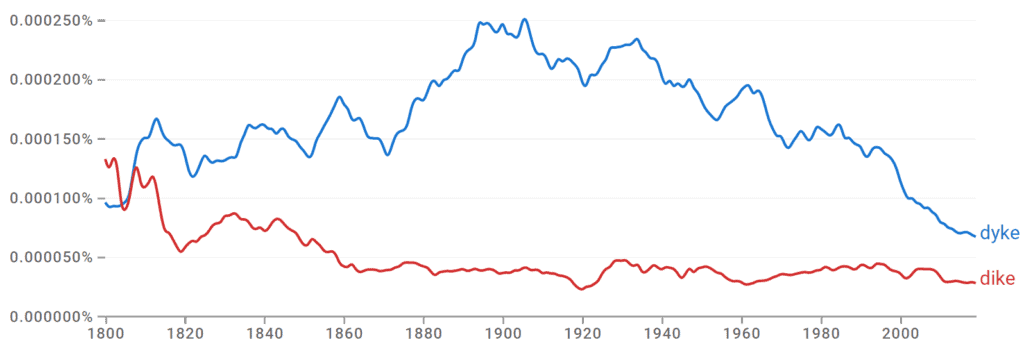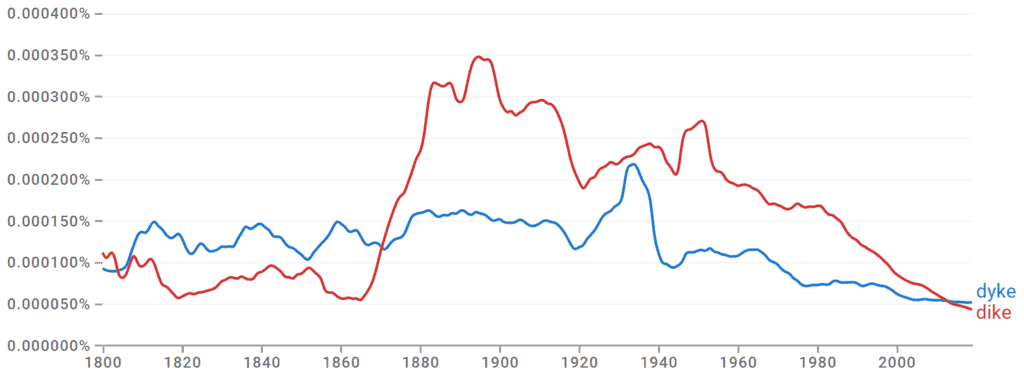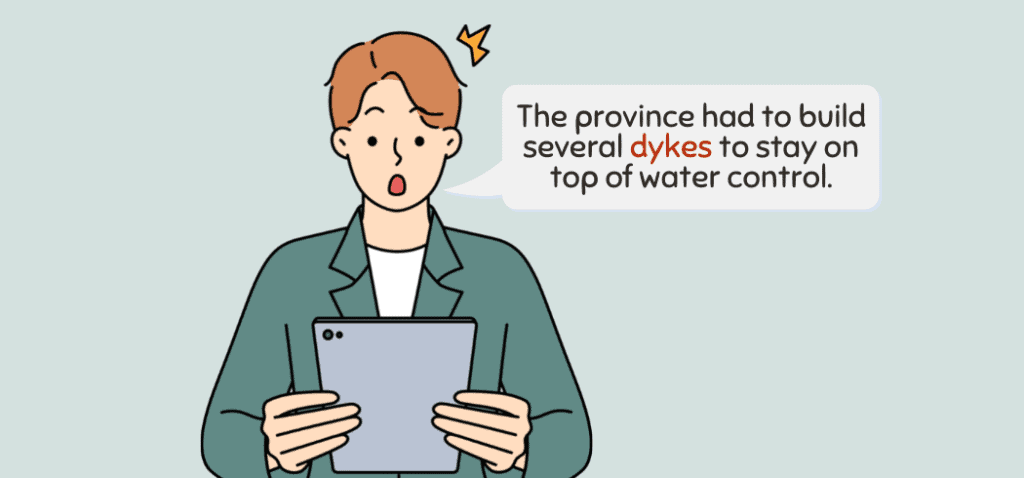Is it dyke or dike? Is one of them a slur? How are you supposed to know which one to use and when? I’ll answer all of these questions and more in this comprehensive guide to the term and its accepted spelling.
What Is Meant by Dyke in Geography?

In geography, the noun dyke (or dike) is a naturally formed fracture within the stone that lets water flow through it and eventually fills in with another type of stone.
Then, in architecture, a dyke (or dike) is a man-made structure used to hold water away from a certain section of land, also called a dam, like the Hoover Dam.
But the word “dyke,” when spelled with a Y, has been used over the years as a slang or slur term to describe a lesbian. It’s not a kind term, so try and avoid using it.
Dike or Dyke: Which Is Correct?

Like most words with alternate spellings, it comes down to location. In Canada and the UK, the preferred spelling is dyke. But in the US, it’s dike. With that being said, both spellings are widely accepted around the world, so don’t worry too much about it.

How Do You Spell Dyke?
If you’re referring to a natural rock formation or a man-made dam, you can use either dyke “d-y-k-e” or dike “d-i-k-e.” But to remain correct, regionally, use dyke for Canada and the UK and dike for American spelling.
If you’re talking about the slur for a lesbian, first of all, try and avoid using the word altogether. But if you must, the correct spelling is d-y-k-e.
In some cases, it can also be a surname, like with people such as Kristen Van Dyke or Gareth Dyke.
What Is Another Term for Dyke/Dike?
As long as we’re talking about the natural rock channel or a man-made wall to keep water in, here are a few synonyms you can use for either.
- Dam
- Barrier
- Wall
- Ditch
- Levee
- Bank
- Causeway
Is Dike/Dyke an Offensive Term?
As I briefly touched on above, the term “dyke” when used to talk to or about a butch-like lesbian, is considered an offensive slur. So, do your best not to use the term in conversation or writing unless you’re discussing the context of how offensive it is and why.
In some places, the term has been appropriated and spun around to be used in a positive way, but that’s a fairly new concept, and you should still exercise caution when using it.
Dyke Examples in a Sentence

- Why do we have to go all the way to America to see The Hoover Damn? It’s really just a big dyke, isn’t it?
- They built a dyke in Labrador to keep a huge body of water off the land so that they could start mining.
- The province had to build several dykes to stay on top of water control.
Dike Examples in a Sentence
- One of the very first things I was taught in university was how to design a dike.
- Wide water dikes are so useful for creating water reservoirs.
- We walked along the Juneau Empire Airport Dike Trail.
- The Alaskan Way Seawall is a dike found in the country of Canada but is owned by the US.
Dike or Dyke, It Doesn’t Matter
That’s another wrap on a helpful grammar guide! Just remember that you can use both dyke and dike to describe a retaining wall for a large body of water. But dyke is more common in Canada and the UK.

Comments are closed.